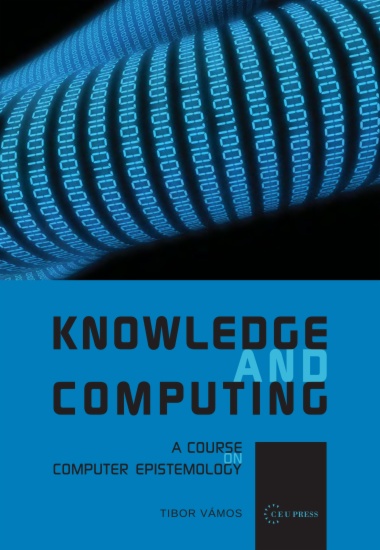The result of the author's extensive practical experience: a decade in computer process control using large scale systems, another decade in machine pattern-recognition for vision systems, and nearly a decade dealing with artificial intelligence and expert systems. These real-life projects have taught Vámos a critical appreciation of, and respect for, both abstract theory and the practical methodology that grows out of—and, in turn, shapes—those theories.Machine representation means a level of formalization that can be expressed by the instruments of mathematics, whereas programming is not more and not less than a special linguistic translation of these mathematical formulae. How these all are related and controlled is a most practical philosophical and computation professional task. Wide experience in the practical fields of computer science, and the research of the underlying theoretical issues have led Vámos to the development of the attitude and activity of constructive skepticism.
- Cover
- Title page
- Copyright page
- Table of Contents
- Acknowledgements
- Preface of Computer Epistemology
- Foreword
- Chapter 1 Why Computer Epistemeology?
- 1.1. Prologue: Why?
- 1.2. Knowledge about Knowledge
- 1.3. Did It start with the Greeks?
- 1.4. An Important Addendum about the Non-formalized
Human Issue
- Chapter 2
Algebra: The Discipline from the Simplest to
the Most General
- 2.1. Introduction to the Game of Life and Thinking
- 2.2. Algebra, The Ladder from Counting to Coordinatizating
the Universe
- 2.3. Sets, Other Entity Abstractions
- 2.4. Algebraic Operations in Highly Practical roles:
Computational Classes
- 2.5. Two Examples of Application Algebraic Methods
- 2.6. Abstracted Reality: Reflections in the Brain and Résumé
- Chapter 3
Logic, the Origin of All Programming
- 3.1. Basic Problems
- 3.2. Logic in Computers
- 3.3. About Final Truth, Epistemic Ethics
- Chapter 4
How Uncertain is Uncertainty?
- 4.1. A Long Story of Uncertainty about Uncertainty
- 4.2. Late Evolution
- 4.3. The Pragmatic View of Methodologies
- Chapter 5
Excursion to the Fields of Ontology, Being
and Beliefs
- 5.1. Ontology, Homunculus, Constructive skepticism
- 5.2. Ethics: Our Pragma—
Useful and Necessary
- 5.3. Analytic Versus Metaphysical, Logic Versus Pattern
- 5.4. future Human roles and Attitudes, and Constructive
skepticism
- Chapter 6
Conclusions
- Appendices
- 1.1. Integrated Control of Vehicles and Traffic
- 1.2. Scheduling
- 2.1. The Game of Life and the Turing Machine
- 2.2. History of notations
- 2.3. The Development of Algebra
- 2.4. The Evolution of Number Concepts and their Combined
Algebraic-Physical representation.
- 2.5. A Simplified Review of Some Basic Algebraic Concepts,
Operations and Axioms
- 2.6. Support Vector, Simulated Annealing, Markovian
Chains, Monte Carlo Methods
- 2.7. Lie Algebra and Group
- 3.1. Basic Notations
- 3.2. Non-Monotonic Logic
- 3.3. Quantum Computation
- 3.4. Prolog, Logic Programming
- 3.5. Paradoxes, Undecidability
- 4.1. skeptics
- 4.2. Voting, Games
- References
- Picture Credits
- Name Index
- Subject Index
- Back cover

